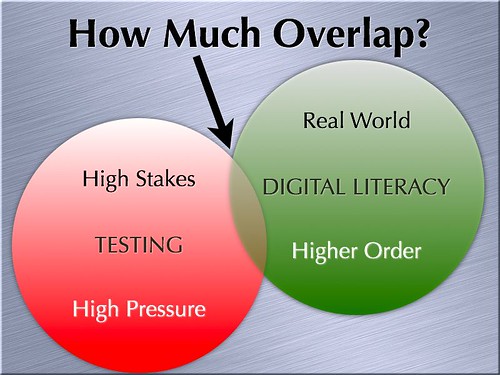No Child Left Behind (NCLB) continues to harm the formal educational experiences of millions of students and teachers in the United States. In her recent book, “The Death and Life of the Great American School System,” Diane Ravitch explains why. In her chapter titled, “Hijacked!” on page 29, Ravitch writes:
Whereas the authors of A Nation at Risk concerned themselves with the quality and breadth of the curriculum that every youngster should study, No Child Left Behind concerned itself only with basic skills. A Nation at Risk was animated by a vision of good education as the foundation of a better life for individuals and for our democratic society, but No Child Left Behind had no vision other than improving test scores in reading and math. It produced mountains of data, not educated citizens. Its advocates then treated that data as evidence of its “success.” It ignored the importance of knowledge. It promoted a cramped, mechanistic, profoundly anti-intellectual definition of education. In the age of NCLB, knowledge was irrelevant.
As an advocate for higher order thinking, creativity, digital literacy, project-based learning and engaged, hands-on learning, I’m acutely aware of the damaging influence of NCLB in narrowing the curriculum. NCLB communicates to administrators, teachers, and parents that the only metrics of educational excellence which matter are student scores on standardized reading and math tests. This is a lie.
There are SO many other things which matter in learning, education, school and life. It is incumbent upon us as citizens and voters who care to not only work for the repeal of NCLB, but advocate for more differentiated, comprehensive approaches to assessment. NCLB was a tragic mistake, but thankfully we live in a republic. We can change our laws, and we should.
For more of my thoughts on Ravitch’s book, see my recent posts:
- Schools must be data informed: NOT data driven
- NCLB has killed creative teaching and energetic learning about science (at least before state testing)
- NCLB was designed to define public schools as failures
- Will Race to the Top Hurt Kids and Make Charter School Entrepreneurs Rich?
Also check out my phonecast from last week (recorded with iPadio) “Public Schools Are Not Businesses – Why Educational Sharing Matters.”
Since I started blogging in 2003, I’ve written 145 posts which reference NCLB. If you really want to step back in time, check out my April 2005 post, “NCLB may be a stealth agenda to allow corporations to take over our schools.” I’d also recommend the February 2008 post, “A contrary view of education and NCLB” (which is an admitted rant in response to a “State of the Union” address) and my April 2006 post, “Troubles for NCLB: It may not be improving achievement and it corrupts the profession.”

Creative Commons image by Colin Purrington
Technorati Tags:
assessment, book, diane, education, nclb, policy, politics, ravitch, reform, review, school, test, testing, critique, criticism, improve


Comments
One response to “NCLB damages US education by narrowing the curriculum”